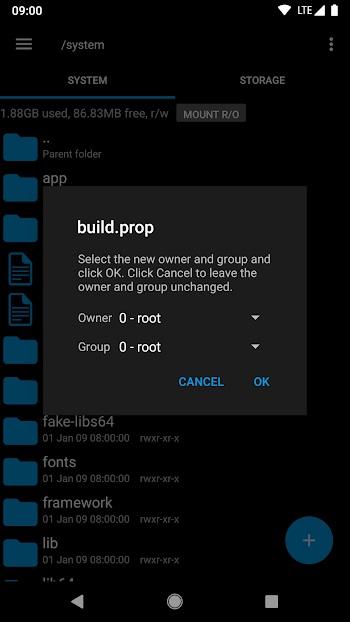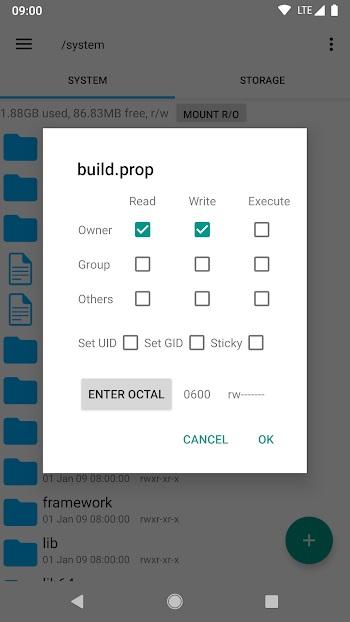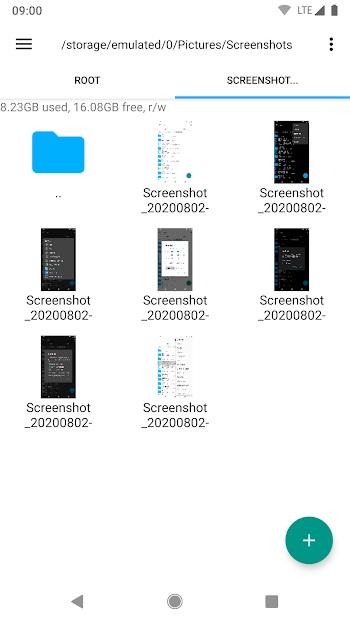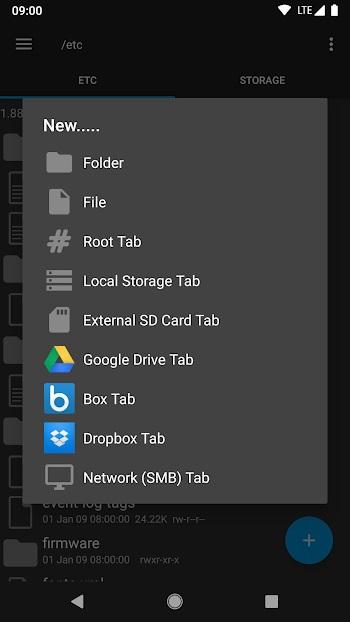Root Explorer APK – A Deep Dive Into Android’s Most Powerful File Manager
Root Explorer APK is not just another file manager—it’s a robust tool engineered for advanced users who want full control over their Android devices. Often dubbed the ultimate file manager for root users, Root Explorer provides access to the entire Android file system, including the elusive data folder. Whether you are a developer, a customization enthusiast, or a power user, Root Explorer empowers you to explore and manipulate files in ways that standard file managers can’t.
In this extensive article, we’ll take a deep look at everything that makes Root Explorer APK the go-to app for rooted devices. From its rich set of features to the use cases, benefits, interface, and even some common challenges and solutions, this is your complete guide to understanding why Root Explorer is trusted by millions of Android users around the world.
What Is Root Explorer?
Root Explorer is a file management tool developed specifically for rooted Android devices. Unlike standard file managers, it grants superuser access (root privileges) to the file system, which means you can view, edit, delete, or move files and folders that are normally protected or hidden from regular users.
This includes directories such as:
-
/data -
/system -
/vendor -
/proc -
/dev
Root Explorer allows you to interact with these areas, offering complete control over the underlying structure of your Android operating system. This is particularly useful for tasks like modifying system apps, editing configuration files, or even changing boot animations.
Core Features of Root Explorer APK
1. Root Access
The hallmark feature of Root Explorer is its full root access. This enables users to open directories that are otherwise inaccessible, granting unparalleled control over the system. With root access, you can:
Advertisement
-
View and modify hidden system files
-
Edit the build.prop file
-
Move or remove pre-installed apps (bloatware)
-
Modify system permissions
-
Install custom fonts, sounds, or boot animations
2. Multiple Tabs Interface
Root Explorer includes a tabbed browsing system. This allows users to open and manage multiple folders at once, making file transfers and comparisons far more convenient. You can copy from one tab and paste into another without navigating back and forth.
3. Text Editor
It features a powerful built-in text editor that supports root-level file editing. You can directly open system configuration files and scripts, make changes, and save them with elevated permissions.
This is especially useful for:
-
Editing
build.propfor device tweaks -
Modifying shell scripts
-
Adjusting system permissions or services
4. Permission Editor
Root Explorer includes an easy-to-use permission editor. This allows you to view and change the file permissions (rwx) and ownership (UID/GID) of files and folders, an essential feature for ensuring that modifications work correctly in the system environment.
5. SQLite Database Viewer
The APK also includes an SQLite database viewer, enabling users to open .db files for direct inspection and modification. This is a powerful tool for developers and advanced users looking to customize or debug apps.
6. Archive Manager (Zip, RAR, TAR)
You can create and extract ZIP, TAR, and RAR files directly within the app. This makes it ideal for managing backup files, flashing mods, or handling compressed data packages without needing external tools.
7. Cloud Storage Integration
Root Explorer supports integration with popular cloud storage platforms, including:
-
Google Drive
-
Dropbox
-
Box
This allows users to sync, back up, or transfer files between local storage and the cloud seamlessly.
8. Bookmarking System
To improve navigation, Root Explorer allows users to bookmark frequently used directories. This is extremely useful for quick access to complex or deep-rooted file paths.
9. MD5 Checksum Support
The app supports MD5 checksums, enabling you to verify file integrity. This is especially valuable when dealing with system files or downloaded mods that must remain uncorrupted.
10. SMB Support for Network Access
Users can access shared folders over a local network via SMB (Samba). This turns your Android device into a full-fledged file navigator for network drives.
11. APK Binary Viewer
If you're exploring app internals, Root Explorer can view the contents of APK files. This includes the ability to inspect the manifest and resources, useful for developers or modders.
Use Cases of Root Explorer
Root Explorer serves many different user scenarios, including:
1. Removing Bloatware
Most manufacturers include pre-installed apps that users may not want. With Root Explorer, you can remove these apps by navigating to the /system/app or /system/priv-app folders and deleting the APK files directly.
2. Editing build.prop for Custom Tweaks
The build.prop file controls a number of Android system behaviors. Root Explorer allows users to:
-
Change the device's DPI
-
Enable or disable boot animations
-
Tweak performance settings
-
Modify the fingerprint for app compatibility
3. System Theme Customization
Users can change fonts, boot animations, and system sounds by replacing relevant files in system directories. Root Explorer facilitates this by giving full access to the /system/media and /system/fonts folders.
4. Kernel and Performance Tweaks
Advanced users often modify init scripts or kernel settings to improve performance or battery life. Root Explorer allows direct access to /init.d and similar folders to facilitate such changes.
5. Flash Recovery Files or Custom Scripts
If you download a .zip mod that isn't flashable via recovery, you can manually extract and apply files using Root Explorer.
6. Development and Debugging
App developers who want to inspect logs, databases, or configuration files can use Root Explorer to examine and manipulate app directories under /data/data/.
User Interface and Experience
Root Explorer features a clean and functional UI. While it may not be as visually flashy as other file managers, its utilitarian design is intentional—it prioritizes power and control over aesthetics.
The app uses:
-
Tabbed browsing for multi-window support
-
Sidebar navigation for easy directory access
Advertisement
-
Long-press actions for context menus
-
A top toolbar with root toggles, bookmarks, and settings
Despite its power, Root Explorer keeps navigation intuitive, so that even moderately experienced users can get the hang of it.
Performance and Stability
Root Explorer is renowned for its stability. Even when dealing with complex or protected system files, it handles operations with minimal errors. It also includes safety checks before deleting or modifying critical files.
It’s lightweight, runs smoothly even on older devices, and does not hog system resources. The developers regularly update the app to ensure compatibility with the latest Android versions and devices.
Security Considerations
Because Root Explorer deals with sensitive areas of the Android file system, it's important to use it cautiously. Some key security notes include:
-
Always back up important files before making system-level changes.
-
Avoid deleting or renaming files unless you are certain of their purpose.
-
Grant root permissions carefully—use SuperSU or Magisk to control access.
Improper use of Root Explorer can lead to boot loops, app crashes, or even a bricked device. However, for users who understand Android internals, it becomes a powerful ally.
Pros and Cons
Pros
-
Full root-level access to the entire Android file system
-
Tabbed browsing enhances multitasking
-
Built-in text and SQLite editors
-
Support for cloud storage and network drives
-
Extremely stable and lightweight
-
Regular updates and bug fixes
Cons
-
Requires root access, which voids device warranty
-
Not suitable for beginners
-
Interface is more functional than aesthetic
-
Misuse can harm your device if used irresponsibly
Alternatives to Root Explorer
While Root Explorer is highly respected, there are other root file managers available, each with their own strengths:
-
Solid Explorer – Offers both root access and a modern design
-
ES File Explorer (Legacy) – Once popular, now discontinued due to bloat
-
MiXplorer – A highly customizable file manager with root capabilities
-
FX File Explorer with Root Add-on – A secure and polished app with optional root support
However, Root Explorer remains a favorite for users looking for a no-nonsense, ultra-reliable tool focused solely on functionality and control.
Compatibility and Support
Root Explorer supports most Android devices running Android 4.0 (Ice Cream Sandwich) and up. It works well with SuperSU, Magisk, and other root management tools.
The developers provide consistent updates to support:
-
Latest Android versions (including Android 12 and 13)
-
64-bit processors
-
New file system types (EXT4, F2FS)
Additionally, the app includes comprehensive logging and error messages to help users troubleshoot issues quickly.
Community and Documentation
While Root Explorer doesn't include in-app tutorials, there's a robust community on platforms like XDA Developers and Reddit that provides guides, tips, and troubleshooting help. Users can also find a wealth of how-to content related to Root Explorer on forums and YouTube.
Why Root Explorer Stands Out
The standout factor of Root Explorer is its purity of purpose. It isn’t bloated with features that dilute the user experience. Instead, it focuses squarely on providing root users with the access, tools, and precision needed to manage their devices effectively.
For developers, it becomes a sandbox for testing. For modders, it’s a gateway to limitless customization. And for curious users, it’s a window into how Android truly works behind the scenes.
Conclusion
Root Explorer APK is a definitive tool for Android users who demand full control over their devices. While it requires root access and a level of technical knowledge, the reward is a deeper, more powerful Android experience.
Whether you want to remove unwanted apps, tweak your device’s performance, customize the UI, or just explore the system files, Root Explorer equips you with everything you need—and nothing you don’t.
In a world where Android is becoming more locked down with each OS release, tools like Root Explorer preserve the spirit of open-source tinkering and digital freedom. For those bold enough to root their device and take command, Root Explorer remains one of the most essential tools in the Android toolkit.
Let's build community together and explore the coolest world of APK Games/Apps.












1. This is the safest site on the Internet to download APK. 2. Don't ask about the Play Protect warning, we've explained it well, check here. 3. Do not spam, be polite and careful with your words.